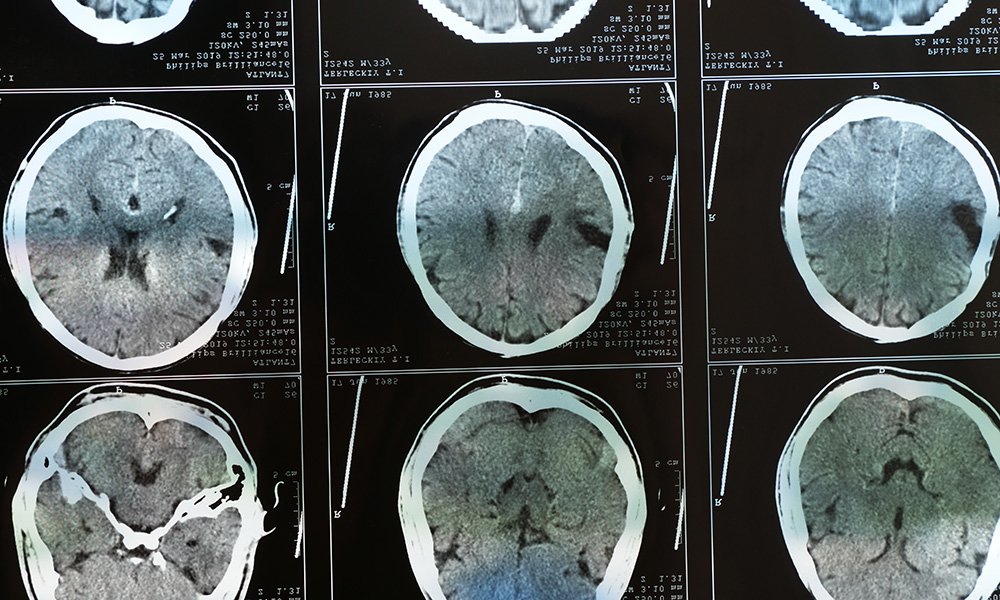
As many as 92 per cent of women who experience violence at the hands of a partner may experience brain injury, which can lead to chronic physical, cognitive and emotional symptoms.
Lingering trauma from a brain injury can increase challenges facing survivors of intimate partner violence in child custody and access cases, according to new research from UBC Okanagan.
Dr. Paul van Donkelaar, a Professor in the Faculty of Health and Social Development, oversaw the research conducted as part of UBC’s Supporting Survivors of Abuse and Brain Injury Through Research (SOAR) project. Researchers explored the ethics of how a woman with a brain injury, sustained through partner violence, might be treated in Canada’s justice system.
“A brain injury will contribute to the way the person behaves in fairly predictable ways, and that needs to be considered during legal proceedings between survivors and perpetrators of intimate partner violence,” he says. “This paper is the first of its kind that looks at how the legal system might use a brain injury diagnosis in parenting disputes, and how women are unfairly treated—including during a custodial challenge.”
As many as 92 per cent of women who experience violence at the hands of a partner may experience brain injury, which can lead to chronic and sometimes debilitating physical, cognitive and emotional symptoms, including headaches, dizziness, memory issues, trouble with sleep and difficulty regulating emotions.
The research, published in the Journal of Law and the Biosciences, was conducted by Quinn Boyle, a doctoral student working with Dr. Judy Illes at Neuroethics Canada. While there have been recent improvements when it comes to mental health issues in custody disputes, Boyle says this is not the case with a brain injury.
“If a lawyer raised the diagnosis of depression, anxiety or PTSD as a reason why a woman would be unfit to parent, they would be scoffed at,” says Boyle. “For the most part, basic mental health disorders are no longer used against a woman during a parenting dispute where intimate partner violence is involved because evidence has shown that they can be managed effectively.”
There is a lot of overlap between mental health symptoms and those of a brain injury, he adds.
“If we’re now saying there is a likelihood of brain injury, we may have a situation in the Canadian justice system where that brain injury is used against the woman during a legal challenge for custody of her children,” he says. “A lawyer could hypothetically say the brain injury is a concern and that the woman is unfit to parent.” More specifically it is the lack of gold-standard treatment for brain injury that creates uncertainty about a woman’s recovery trajectory and timeline. It is this uncertainty that will likely be weaponized against women.
Current legislation and confidentiality laws surrounding health information leave these women vulnerable as the brain injury can be disclosed in court regardless of their preference, and also be critically examined and weaponized by opposing counsel. The lawyers interviewed unanimously expressed their strategy as opposing counsel would include using a brain injury to argue the mother is unfit to parent, as their professional duty is to represent the best interests of their client. This is despite them acknowledging it as abhorrent, immoral behaviour earlier in the interview.
Dr. Deana Simonetto, Assistant Professor with the Irving K. Barber Faculty of Arts and Social Sciences and co-author of the paper, says this research provides good insight into a family’s experience of parenting with a brain injury and what the legal system does in terms of parenting disputes.
“It’s important to think through how the legal system is structured and how women have been historically treated in parenting dispute cases,” she says. “We want to do the best for them, so our solutions need to change these structures. However, they are not easily changed.”
In a crime that is under-reported, and where there are often no witnesses, it’s already difficult for survivors of intimate partner violence to receive the supports they need. Given brain injury often goes unrecognized and undiagnosed, the challenges facing survivors are even greater.
“A brain injury can leave a person seeming out of sorts and confused. The police might think they are acting erratically, and interpret the behaviour as being caused by substance use or mental health issues, rather than a physical injury to the brain,” says Dr. Simonetto.
Current and previous SOAR research has focused on developing education and training for frontline workers—including police, paramedics and shelter workers—to better recognize and respond to brain injury from intimate partner violence.
The next step, says Dr. van Donkelaar, is to raise awareness in the legal system of brain injuries caused through intimate partner violence. This latest paper provides four recommendations, including training lawyers and judges about brain injury and its effect on survivors of intimate partner violence. The authors also propose organizations conduct brain injury assessments on survivors of intimate partner violence to prioritize allyship with medical experts who are willing and able to advocate for women in parenting disputes. Lastly, they recommend that women are offered complete transparency so they know how a brain injury diagnosis might be used against them in court.
“We need to work with the relevant agencies at the provincial levels—those that work with lawyers and judges—and help them recognize that brain injury is likely occurring in victims of intimate partner violence,” says Dr. van Donkelaar. “When a brain injury is involved, we need to better understand the injury and do the right thing both from a medical and legal perspective.”